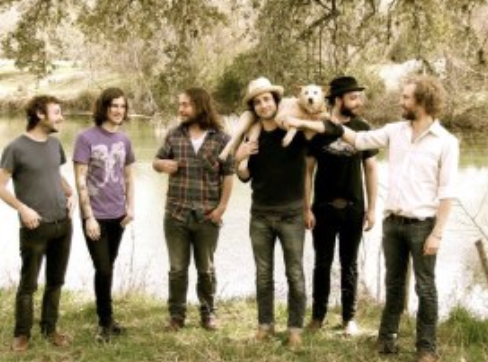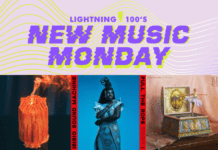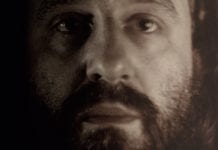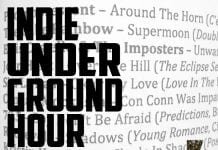Matthew Houck likes to work. The Alabama native, now resident in Brooklyn has delivered five albums as Phosphorescent since his 2003 debut. Houck has a highly distinctive artistic voice and a refreshing, rolled-sleeves approach to his expression. 2007’s Pride – a delicate and haunting work of ragged country and bittersweet gospel – first caused ears to swivel in Phosphorescent’s direction. He followed it with To Willie, a tribute to Willie Nelson, then 2010’s Here’s To Taking It Easy, an enthusiastic plunge into country rock and Americana. Now, his sixth album Muchacho flashes yet another color in the subtly shifting Phosphorescent spectrum.
Muchacho reprises the understated melancholia and sensuous minimalism of Pride, while kicking up a little of Here’s To Taking It Easy’s dust, but it also strikes out into more adventurous waters via rhythm and electronic textures. It took shape partly as a result of events beyond Houck’s control. After spending the best part of 18 months touring his last record, Houck was, in his words “pretty fried.” He returned to the Brooklyn Navy Yard studio where he’d recorded his previous two albums, planning “on taking this whole thing down a few notches. I wanted to make music,” he explains, “but I was weary, so the spectre of putting anything out and getting back on the road was a bit of a block.” He bought a load of old analog gear and “just starting playing around with it, making these noises. They weren’t songs, they were just strange sound pieces. I’ve always had that element in my work, and one or two weird, ambient pieces seem to squeeze themselves onto every record, but suddenly I was doing a lot of those.”
The singer says, “This time, I was getting really excited about the experimental sounds I was making. I was thinking I might make an ambient record that had vocals, but no lyrics. I was actually considering releasing it under another name.” Exactly as 2012 turned, Houck’s life began to unravel. A domestic crisis meant he had to find another apartment/studio at short notice, in the dead of winter. His life was falling apart, but almost perversely, “songs just started happening, and there were five or six of them.” Houck admits he was “in the middle of a bit of a freak-out,” so in the small hours one Sunday, he booked a ticket to Mexico, on a plane that was leaving three hours later. “It sounds really cheesy, but I went down there with a guitar and got a little hut on the beach in Tulum, on the Yucatan Peninsula.” After a week there working to finish the songs that would become Muchacho, he went back to NYC, found a new place, fitted it out and began tracking the record in May 2012.
‘Muchacho’s Tune’ – with its opening braid of twanging guitars, piano and electric keys, its warm, rich reverb and poignant mariachi brass – is the song on which the album turns. This was the first song to come to him fully formed, and it establishes the album’s lyrical theme – “that the possibility of redemption through love and romance is not just hopeful, it’s also viable. It definitely exists. But what ends up happening is more redemption through some vague means that I don’t really understand.”
It’s indicative of Houck’s distinctive talent, dedication to his work and trust in his muse, then, that a temporary hurdle didn’t become a serious block. “I got clear of it by just getting to work on the recording,” he says, simply. Sleeves rolled. Resolve fixed. Muchacho delivered.




![Pilgrimage Music & Cultural Fest 2019 Day 1 [Photos]](https://lightning100.com/wp-content/uploads/Pilgrimage-2019-4-218x150.jpg)


